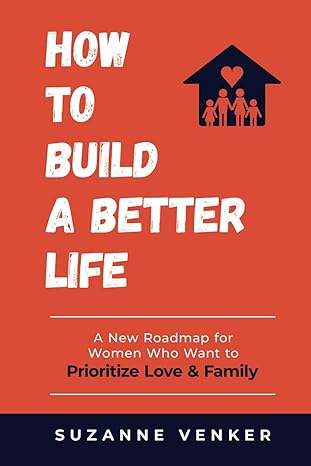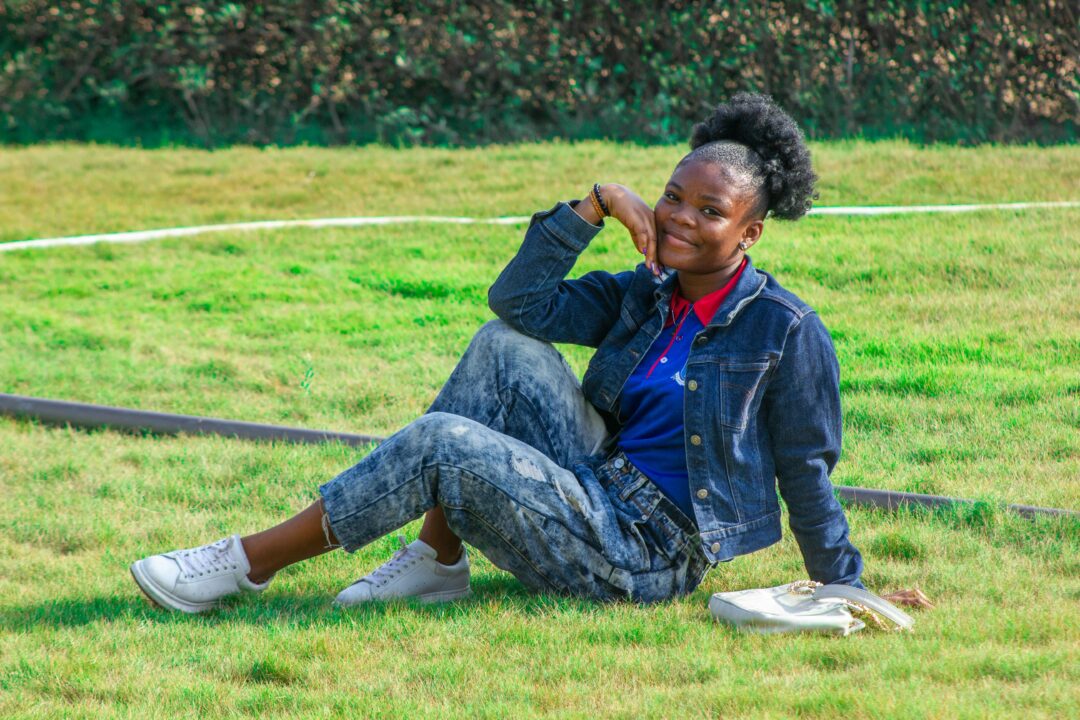Does personal development harm women?
In France, personal development books are bought every year by millions, mostly by women. They accounted for 32% of the book market in 2018. Since the Covid-19 crisis, interest in this field has been growing. But is it really good for women?
The first personal development books arrived on the French market in the 1990s. Since then, they have become increasingly popular and women are the ones who buy and read them. According to an IPSOS study for the CNL, between April 2022 and April 2023, 22% of French men read at least one personal development book against 41% of women.
It is a vast field that includes psychology, health, taking care of oneself, seeking both to know oneself, but also to flourish. some thinking takes on the trappings of neuroscience while others take on certain oriental philosophies These precepts, initially exposed in books, are now satellite in courses and workshops of all kinds, in podcasts that flourish on platforms, but also on social networks, in Instagram posts indicating routines to set up or in TikTok videos, providing more or less wacky advice. Practices such as yoga and meditation are corollaries of personal development.
The questions that we try, through our readings and practices, to answer are: “who am I really?” , “how can I be the best version of myself?” or “how can I be okay, despite the circumstances?” But does personal development always benefit women when we know that many of their fragilities and suffering come from elements outside themselves?
Erasing structural inequalities with positive thoughts
For Charlotte, a meditation teacher in Normandy, the terminology itself is problematic: “Personal development, there is this idea that we could become a better version of ourselves, a bit like a shallot race very much linked to capitalism and self-hatred. By doing this or that, you’re going to get better, you’re going to be better, you’re going to be stronger, you’re going to be smarter, you’re going to be happier, etc. That would tend to say you’re not good the way you are.”
Texts detailing individual methods to flourish may seem vain in the face of structural inequalities. We can say that some women, with the help of books and mantras, fight against windmills. Much of personal development tends to teach that we are solely responsible for our happiness. The latter would be in us, in spite of the environment that surrounds us, and we would only have to welcome it. In the background, it would be suggested that those who are unable to be happy do not give themselves the means.
Camille Teste, journalist, yoga teacher, and author of the book Politicizing Well-Being (Binge audio editions, 2023), says that according to the US polling institute Gallup, in its 2022 report on global emotions, in fifteen years people have never been so unhappy. According to her, a certain guilt, based on personal development in particular, would be at work: “But thanks to its well-oiled rhetoric, neoliberal culture succeeds in a masterful tour de force: instill in us the idea that these circumstances are not the cause of our distress and that it is therefore useless to fight them. “No, if things go badly, it’s our fault: we haven’t worked enough on us yet!”
Personal development, a mirror of inequalities
The field of personal development seems particularly adapted to the needs of women, the biggest consumers of books and podcasts, and try to compensate, without solving them, for the inequalities women/ men. For example, the inequalities of domestic and mental burden within couples, which are largely assumed by women, can lead to overwork. And the imbalances within heterosexual couples in the attention to the other and in the sharing of emotions can break the bond that unites them. Many women immerse themselves in personal development while their romantic relationships are chaotic, or after a breakup. They want to change, to find solutions when the problem often does not come from them, but rather from a system that creates these inequalities. Many women, again, engage in reading and reflection, and even seek counselling because they are dating a toxic or even violent man.
In her essai Selfie (Stock, 2023), the journalist Jennifer Padjemi explains also that the recommendations of personal development and the whole welfare industry, a sprawling field that includes both sport and all kinds of spiritualities, indicate a biased view of society, where one addresses only able-bodied and privileged people, aiming to make those who do not fit into his normative visions feel guilty: “They never explicitly promise wealth or healing, but everything is far more complex than what this type of self-help book encourages: an individual responsibility that would make the person guilty of not trying to change their social or physical condition.”
There is a fine line between encouraging optimism and making people responsible for their situation who cannot radically change it, even with the greatest will in the world.
And then, if personal development can bring some well-being, sometimes a kind of reflexive and introspective pause that we agree, not all women have access to it. Many have neither the time nor the money, and yet, as Jennifer Padjemi points out, they are the ones who need it the most, “those in the care professions, those who get up at dawn to work while the partygoers return, those who work in difficult jobs, those whose mental load is no longer quantified, those who left a distant country to start all over again, those who are never asked if they are okay. 4.6 million people in France work in the care sector – in occupations where others are cared for. They are mostly women, and they are often workers who are not well recognized by society. And who cares for them? Do they have the opportunity to give themselves time for personal development?
However, personal development, which aims in certain aspects to restore an impaired self-esteem, to reclaim one’s life and destiny, is not only a bourgeois fad, or a futile desire, but can constitute, if used wisely, the first stone of a small revolution, both personal and societal.
Self-confidence, the engine of change
Personal development can be more subversive than it seems. The thinker Gloria Steinem reconciles political activism and personal development, highlighting the importance of self-esteem, because as she writes in her book A Revolution Within (Harper Collins, 2023), “self-esteem is not everything, but nothing exists without it.”
Mona Chollet, in the preface to this book, describes the thesis of the famous American feminist, who considers that attention to oneself, far from being an opium of the demobilizing people, can constitute a true revolutionary force: “The quest for self-esteem and activism, far from being opposed, can reinforce each other to form a virtuous circle. Misogyny, homophobia, racism, colonialism, repressive patriarchal education, with the symbolic and/or physical violence they imply, produce intimate and profound effects that need to be addressed if we are to work towards both individual and collective liberation. ‘
The idea would therefore be to repair, by regaining self-esteem, the damage done by society, and to prevent their recurrence by bringing strength and knowledge, as author Camille Teste also indicates: “Wellness practices, in their revolutionary sense, must help us to avoid injunctions, dominations and their effects ; they must foster our autonomy and critical thinking.” Personal development can thus have an emancipatory aim. Self-esteem brings autonomy and makes less permeable to domination as a state of affairs, more inclined to question oneself. This may be the beginning of a rebellion against injustice.
We would also all benefit from men becoming even more interested in these issues and developing a stronger self-esteem, because when we are confident, we enjoy valuing others. For Gloria Steinem: “Learning how to speak more freely about one’s feelings, how to resolve conflicts peacefully, how to reject domination as part of one’s male identity, and how to empathize with the feelings of others: skills that boys often lack.” Of course, education and the reproduction of patterns play a key role.
The sense of misguided personal development
Jean-François Dortier in Grand bien tells you about “Becoming yourself: how and why?” explained the origins of personal development: “Historically, indeed, in the 1930s or 1940s in the United States, the program of self-help, of personal development, was something democratic and emancipatory because we are also in societies where the individual is under house arrest from birth. A woman had to become a mother and stay at home. […] We each have a right to a life, a real life that corresponds to something and not simply to what has been assigned to you.” The American poet Audre Lorde (1934-1992), a woman, black and lesbian, also detailed the importance of self-care for minorities, when she was diagnosed with breast cancer: “Taking care of yourself is a way to preserve yourself in a world hostile to your identity, your community and your lifestyle.”
Now, in companies (where toxic positivity can reign) and on social networks (where a certain smooth aesthetic takes precedence over the background), personal development seems to have been emptied of its substance. It would have lost its original sense of reform. Pour Jennifer Padjemi, le développement personnel, et l’industrie du bien-être ne sont plus là pour nous aider à aller bien mais pour nous faire consommer. In the show Zoom Zoom Zen on the “Pretty Privilege“, where she was invited, she explained: “We are always sold new models. We think we got out and every time, in fact, no. We are promised the idea of becoming more beautiful, bigger, thinner, happier. Except that it always borrows from the racist and grossophobic representations that society infuses on all sides. And today, it’s worse because social networks have taken over.“Indeed, on Instagram, well-being influencers, very followed, enjoin to flourish to be in the norm, sticking well to the diktats, having removed all the substance of what could be the fact of taking care of oneself.
Mona Chollet also expressed this in the preface of Gloria Steinem’s A Revolution Within you, about self-care: “Cut from its militant and minority roots, transformed into an Instagram hashtag, it is now used to sell candles and herbal teas. […] Social control tool, personal development also serves to promote alienating positivity and to prohibit the expression of anger, sadness, despair. He became a plaster on a wooden leg, a systematic response to life’s worst situations: grief, oppression, violence, poverty…”
Personal development is not necessarily individualistic, because everyone’s comfort should also be everyone’s responsibility. A feminist revival involves the truism that the intimate is political, and what could be more intimate than personal development. But would it be necessary that the motivations of the people who seize it are not only financial…






Personal development, when approached thoughtfully and holistically, can be a powerful tool for women’s empowerment and societal progress. While the article raises valid concerns about how some aspects of the self-help industry may perpetuate harmful narratives or ignore systemic inequalities, we shouldn’t dismiss the entire concept of self-development.
As a transformation guide for smart, conscious, high-achieving women, I believe that self-development is fundamentally about self-concept, self-actualization, and creating a better life – not just for individuals, but for future generations. The goal isn’t to place blame or foster unhealthy competition, but to nurture community, sponsorship, and validation.
True personal growth should enhance our ability to recognize and challenge systemic issues, not ignore them. By developing stronger self-esteem and self-awareness, women can become more resilient against societal pressures and better equipped to drive positive change.
We need to reframe self-development as a collective journey rather than a solely individual pursuit. When women support each other’s growth and bring their authentic feminine qualities to the world, it benefits society as a whole. The focus should be on lifting each other up, not tearing ourselves down.
While it’s crucial to be critical of exploitative practices within the industry, we shouldn’t throw out the concept of self-development entirely. Instead, let’s promote more inclusive, socially conscious approaches that empower women to thrive personally while also working towards broader social progress.